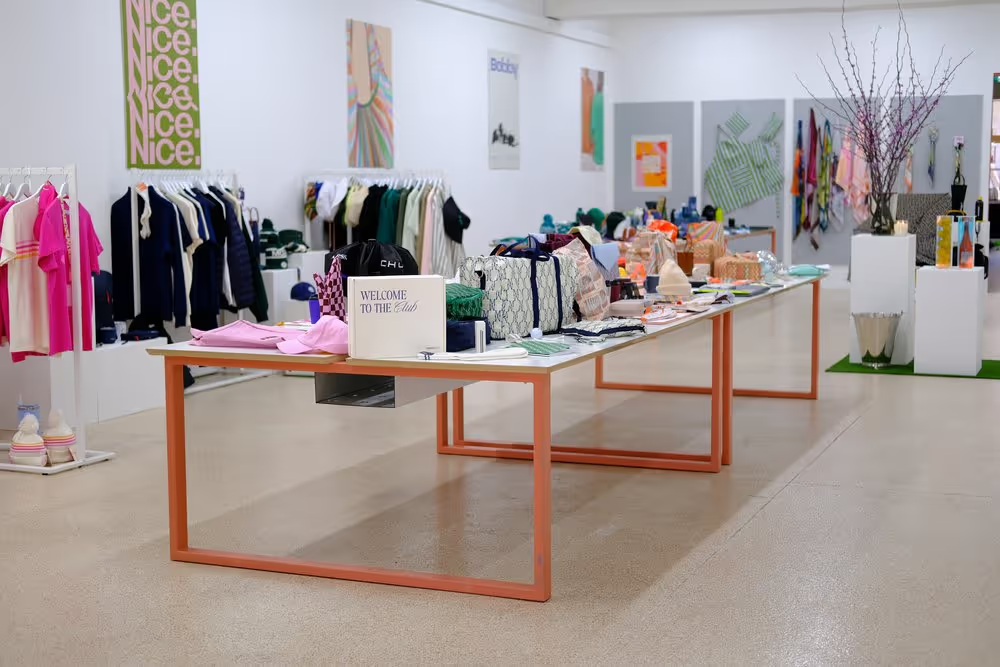Female-Founders | Hannah’s Story
%2B(6).avif)
👋🏼 Meet Hannah Chipkin,
Business owner, creative director, mum to two, wife to one and self-confessed Better Call Saul enthusiast. In 2015, Hannah and her business partner, Pippa, joined forces with no business plan but a solid vision to provide creative merchandise that was twice as nice as anything else on the market. What started as a two-woman hustle has become a multi-million-dollar company, with a staff of fourteen, suppliers across the globe and a reputation for the best merch in the biz.
But, while Merchgirls now does work for clients like Telstra, Mecca and Seek, success was anything but overnight. In this blog, Hannah talks about her experience as a female business owner in a male-dominated industry, the journey to promotional merchandise, and what she’s learnt along the way.
This is Hannah’s story.
What did you do before starting your Merchgirls?
I had a fashion label called Chip Chop!, which was a boutique, womenswear brand specialising in graphic printed bags and apparel. I started it after uni and I had quick success with it [the totes] because it was very different from what was out there at the time. I started out with no plan and just innate feelings of what I wanted to create, but that was how I got noticed––that kind of raw authenticity or originality.
After ten years of Chip Chop!, I started to doubt myself when I didn’t always get things right. I’d think, am I going to get it right? Who am I? What am I doing? I had a young daughter at the time, she was three and I was pregnant, and I was so tired. My family had been my biggest support the entire time I owned Chip Chop!, and they guided me and helped me to the decision to eventually close the business.
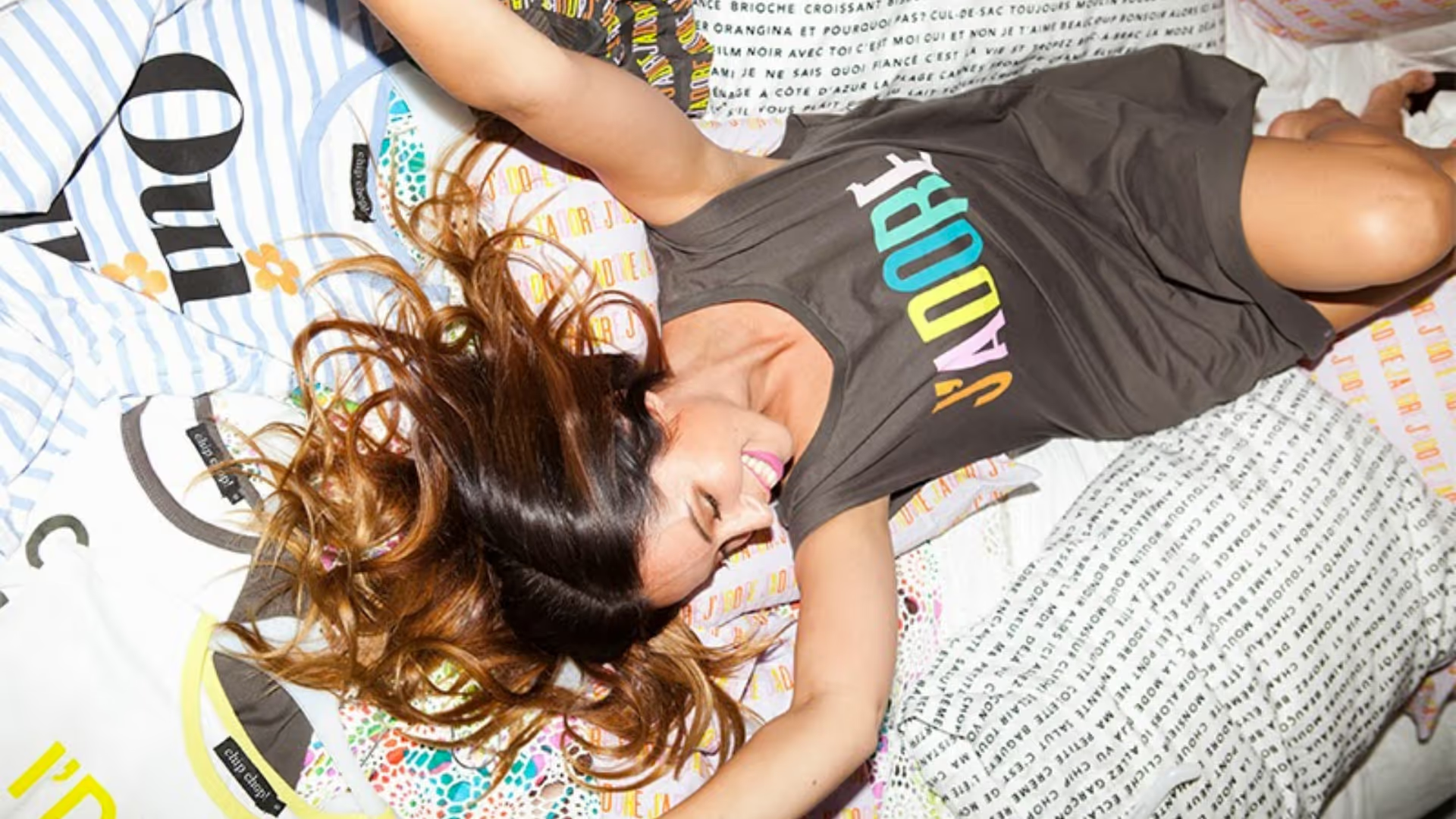
What led to your decision to start Merchgirls?
I met Pippa in that Chip Chop! lifetime, when she was my manufacturer, and we worked really well together. However, I was her biggest client, so when I closed up Chip Chop! her work dried up. I had an opportunity [at that time] because of my work at Chip Chop! where The Australian Ballet asked if I'd be interested in designing a range for them to retail.
You could call it the stars aligning because both Pippa and I were at a crossroads. We had both learned about small businesses and boutique fashion and how limited they are in terms of making a living. When I wrapped up Chip Chop! and told Pippa that I was closing it, we said we’d stay in touch in case there was a way we could work together again down the line.
Lo and behold, it was a very quick opportunity. I had a coffee with Pippa and laid out what I’d been approached to do. I had this decision to make because at this point I could have decided to be a stay-at-home mum. But the opportunity [with the Australian Ballet] was just a little too tempting. So it wasn’t really a hard decision because we were both at the perfect time where we could start something new.
What were some of the challenges you faced when starting Merchgirls?
Our lack of contacts was a big challenge. Having been in the boutique fashion space, we didn't have any corporate clients. We didn't have a client base at all. It sounds so slapdash, but we didn't have a business plan. Without The Australian Ballet, this business wouldn't have been born. It was a six-month job and then at the end of that, we had to figure out who to approach next, essentially just googling companies to talk to.
Not having a catalogue or pricing at the beginning was also a challenge. What we used to make was what we called ‘ghost sample collections’. We did one for an art gallery client and one for a tennis range, then we got those samples made and we’d go and show companies what we could do for them. Our lack of product knowledge outside of what we knew was also an issue. We knew fashion––we made clothing and a few accessories––but we didn't know yet about the world of merchandise, like pens and notepads. That was a new space for us.
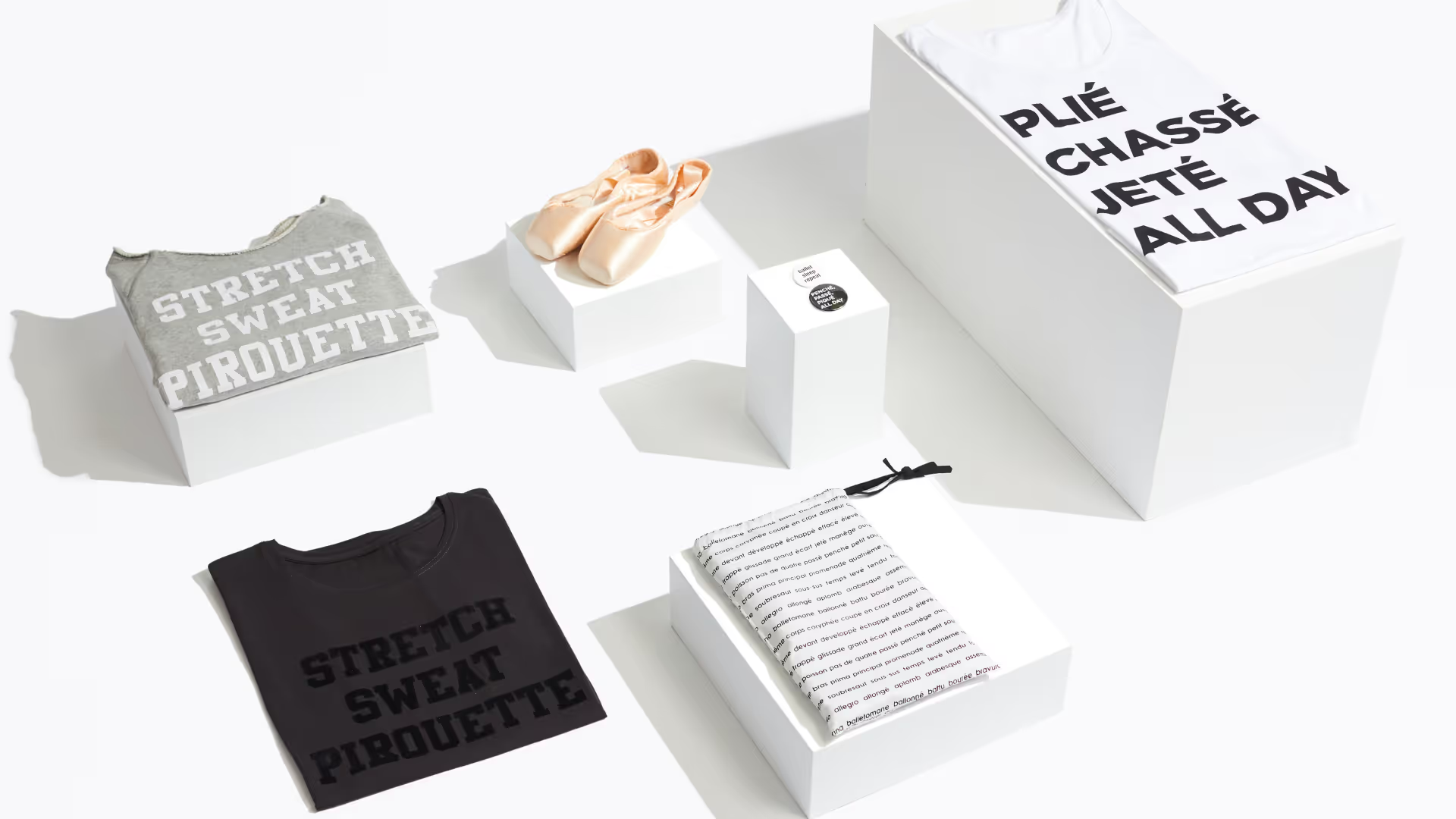
So you started with retail merchandise for The Australian Ballet, what led to your decision to go into promotional merchandise?
Promotional merchandise wasn't even on our radar because we didn't know it existed. But then we got our first corporate customer. Our name had been passed on to an Executive at Seek and they were told that we did cool stuff. After meeting us and seeing our samples, they wanted to place an order for a thousand units! At the time that was HUGE, because we were dealing in hundreds and fifties and were solely making merchandise for people to sell, not give away.
“We learnt everything backwards.”
It was through working with that first corporate client that we learned how to do a corporate run. We learnt everything backwards. We had no plan to go for that market, but now 95% of our market is promotional. At that point, we realised that going into promotional merch was a next-level opportunity. It was so scalable, we just needed the units and we could do anything. So then we had to fast-track it to China, go to lots of trade fairs and start meeting suppliers face-to-face.
What was the process of finding your suppliers like?
It was hard. Pippa and I both had young families we had to leave for weeks on end, leaving our husbands in charge. There was a lot of guilt attached to that.
In terms of finding the suppliers, we would look online and find the big trade fairs. We visited merchandise fairs in Guangzhou and Hong Kong, and it was mind-blowing because these are huge convention centres with thousands and thousands of suppliers. We went in with the goal to find the best products there and if they didn’t have them, we’d ask if they could make them. Over time, we've just kept the best suppliers close to our chest and looked after them and given them a lot of work.
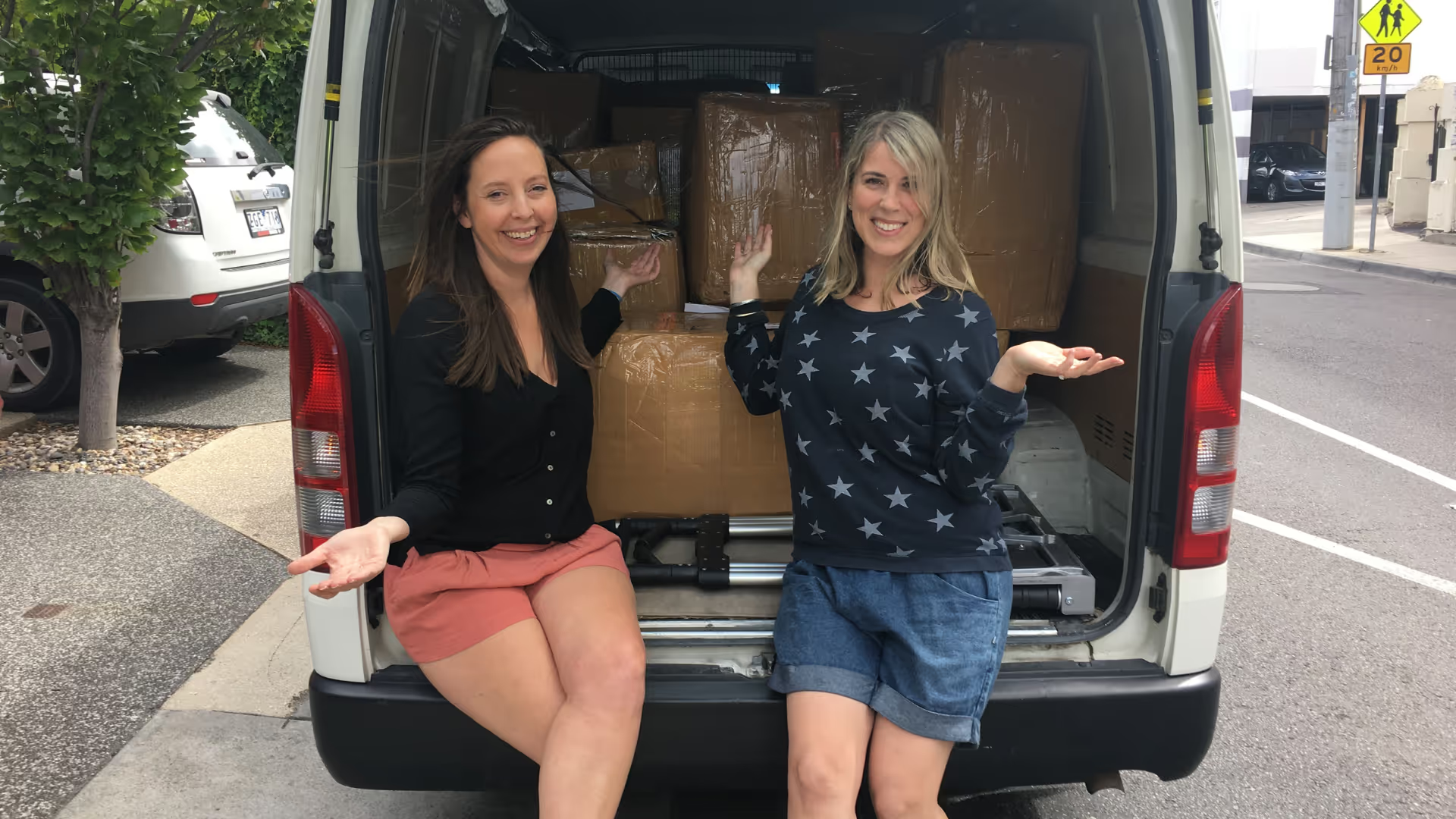
Can you describe the working relationship between you and Pippa?
Very dynamic, very fast and very passionate. We're pretty different and sometimes we disagree on things, but we mostly find a middle ground. Pippa is extremely driven. She's like an engine and I think I'm more like, let’s slow down, let's not go too fast. I feel like Pippa leads the pace, the direction and the strategy, and that I'm here to finesse and keep things polished––dot the I’s, cross the T’s. The team calls us ‘mum and dad’ (cute).
I think that's a good division; she's passionate about logistics, production, data and sales and I'm obsessed with design, our brand, team morale and doing fun stuff like photoshoots and marketing.
What strategies have you found most effective in growing Merchgirls?
The menu was a massive one for systemising what we do. Collating all of our products into a menu was a huge logistical feat, because, as I said, we had no pricing. We just had examples of stuff we'd done for other people, so there was no seamless sales tool. Our merch kits have also been a really important initiative as a sales tool.
Hiring staff at the right times, too. I think it was very scary to hire at first and now we think, how the hell did we operate without people for so long? It took us about three and a half years to get someone in.
“Investing in marketing has been huge for us.”
I'd say working with a really good financial advisor helped as well; someone who's looking at our numbers and doing reporting for us. We didn't have visibility on numbers for a long time, so having that reporting every month/week has been a game changer. Starting marketing was another big one because we had a small online presence but we didn't have any consistency––we were just too busy. So investing in marketing has been huge for us.
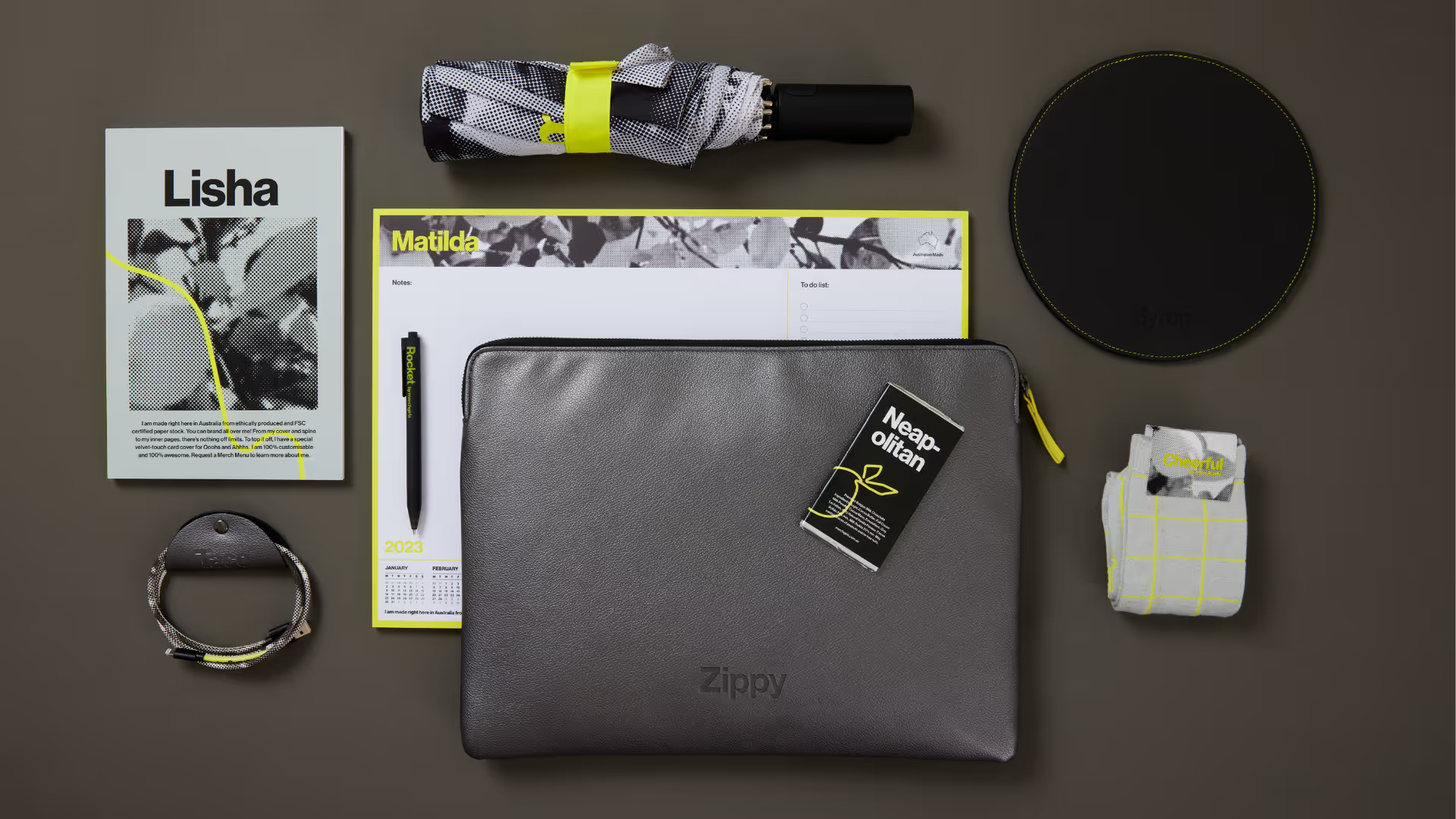
What have been some of the biggest lessons you've learned as a female business owner?
It's an interesting one because the industry that we're in [promotional merchandise] is largely male-dominated. There are plenty of older men that have been selling golf balls and mouse pads for years. So I think we’ve learnt a lot from showing the industry that we can make a business out of doing stuff differently and not following the status quo.
As females, a lot of men that Pippa and I meet in our personal lives at parties are surprised we’re business owners. They can’t comprehend how we can have a successful business with 14 staff and good clients as well as being a mum. They even ask if our husbands are okay with it.
But we've been really lucky in terms of the men we work with. A lot of our contractors, our accountant, our new supply chain manager, and the lovely tradies working with us now on the renovations of our new office are all men and great guys. At Merchgirls, we're actually just about equality, as in, I can run a company, he can run a company and it’s no big deal. What matters is treating everyone with respect. So, fortunately, we haven't come up against many hurdles in terms of the male domination of the industry.
What are the challenges or threats in or to the promotional merchandise industry?
Definitely the reliance on the supply chain from China, just because there has been a lot of turbulent political ground in the last few years. So we are looking to widen that and we're speaking to other countries of origin at the moment. We can't put all our eggs in one basket, it's just too risky.
Sustainability is a big one, too. Our clients are more and more interested in products that are reusable, ethically or sustainably minded and created. No plastic. I think the people who choose not to care about sustainability are going to find that more and more people won't use them.
Made in Australia is also a trend we’re seeing. Our clients want to support the local industry and minimise their carbon footprint. We have just recently started manufacturing a stationery line in Melbourne and we absolutely love working with our local makers.
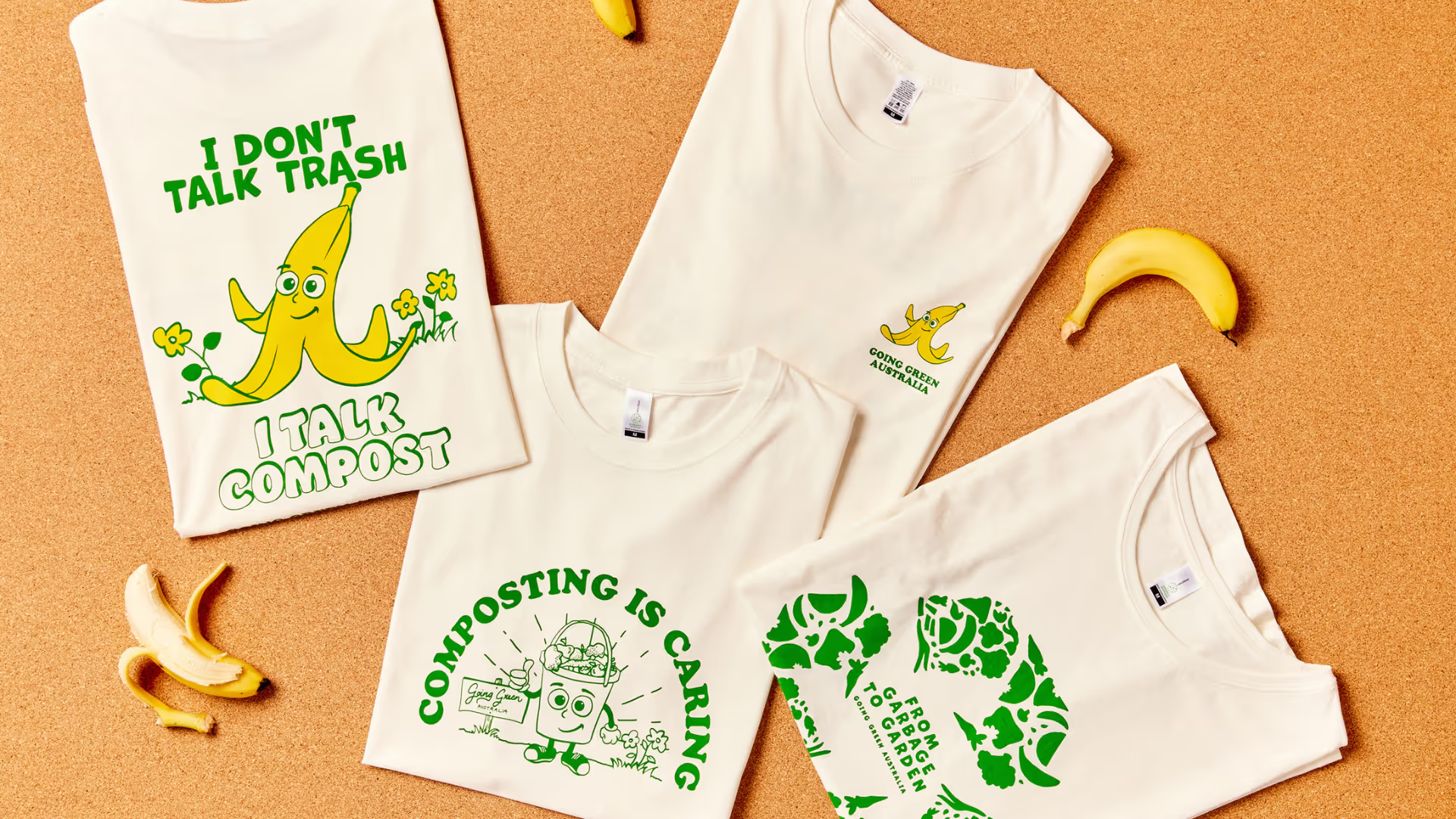
Is there another company or business owner you really admire?
I think Go-To Skincare as a brand is great. Everything is on point and the user experience as a customer is amazing. I just love Zoë Foster-Blake, as most people in the world probably do. I think that she's the perfect balance of businesswoman, family person and fun human.
What are your favourite/least favourite parts of being a business owner?
My favourite would be that I'm very comfortable, secure and I'm not scared of my boss! I think just having a vision and being able to bring people along for the journey is a pretty amazing perk of being a business owner, too.
A hard thing is the neverending to-do list, which is anything from looking at legal documents to approving blog posts to processing payroll––nothing's off limits. There's also a lot of stress in business ownership and running a business is all-consuming. There's real pressure that if we don't make the right decisions then what we've worked for could tumble down.
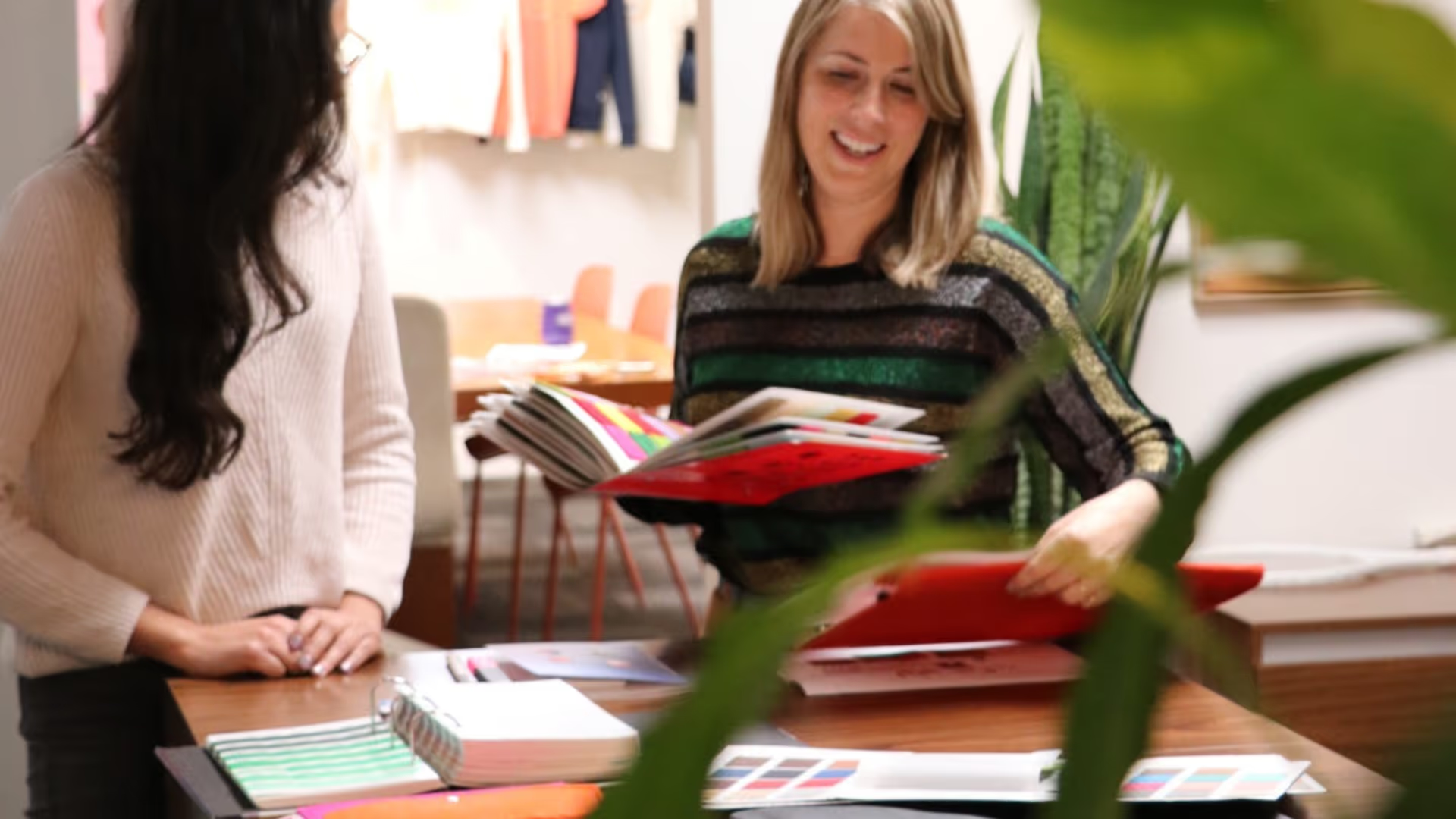
How do you balance all of that stress and the all-consuming nature of the job with your personal life?
I don't bring work home with me. So from the time I enter my home, which might be 6 or 7 at night, I don't open my email or take a work call. Not until I'm back in the office the next day. My family has me for that time. For my own downtime, I do like to get on Pinterest, Instagram, realestate.com and Facebook Marketplace and I look at things and places that feed me. I put music on, pour a glass of wine and look at furniture and I just start saving things, it’s a real outlet for me. My husband shares me with Facebook Marketplace.
What advice would you give to other women looking to start their own business?
It’s cliche, but you definitely need a point of difference. Don't bother starting something until you’ve figured out if it’s needed, or if the market is saturated. You need to make sure it's a viable idea. You’ve also got to be very, very passionate, self-motivated and able to work hard. I really do think with passion, you won't stop till you've somehow chiselled your way through to the point that you're looking to get to.
“...you have to totally surrender to the vision and work it from 9 to 5 every day.
That's your job.”
You also need some form of financial stability. So you might need a partner that's able to pay your way or help pitch in for the mortgage or rent while you're trying to save up for your business costs. In some form, you have to be financially stable or have a plan of how you're going to fund [your business] over time. And then you have to totally surrender to the vision and work it from 9 to 5 every day. That's your job.
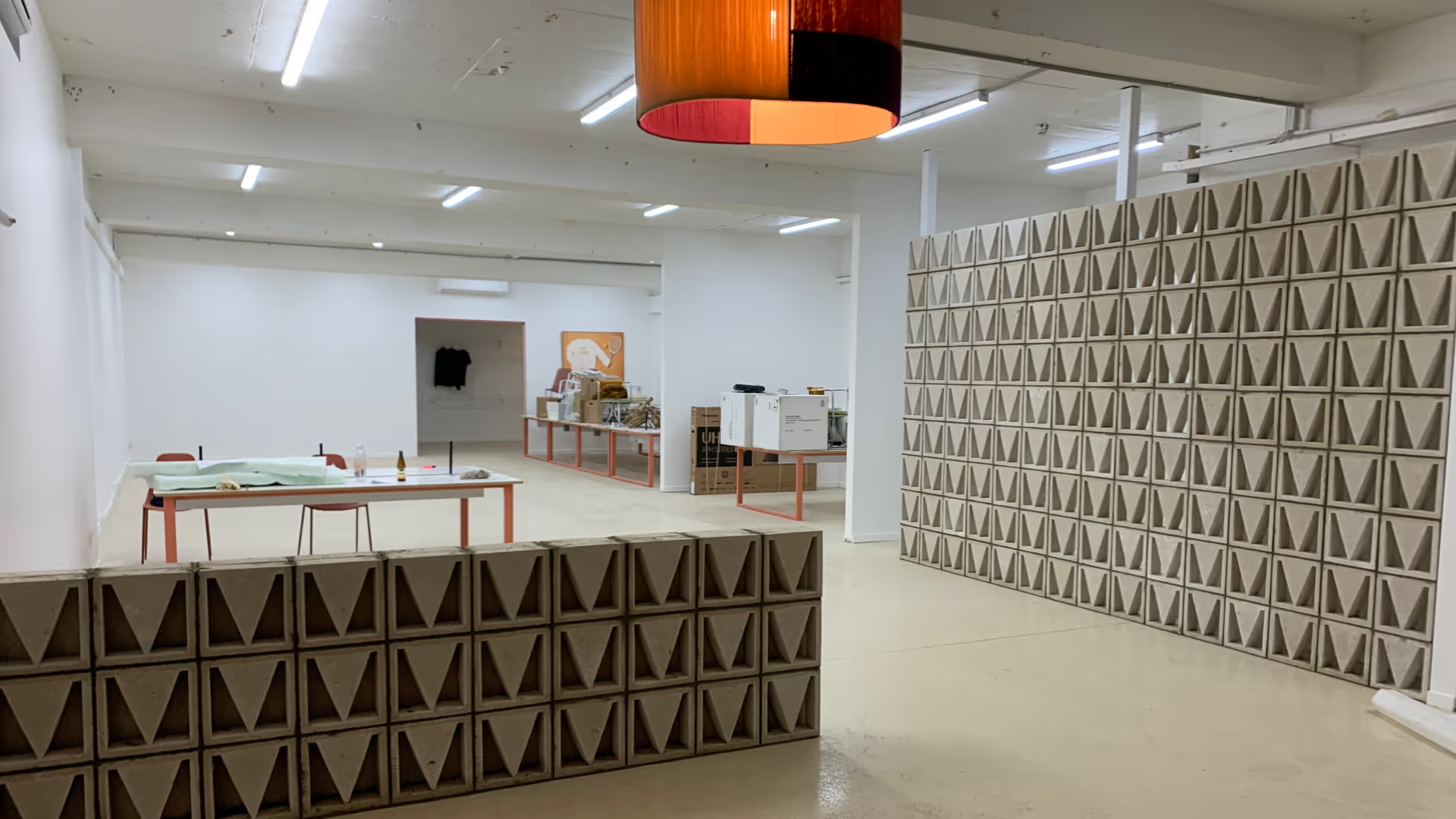

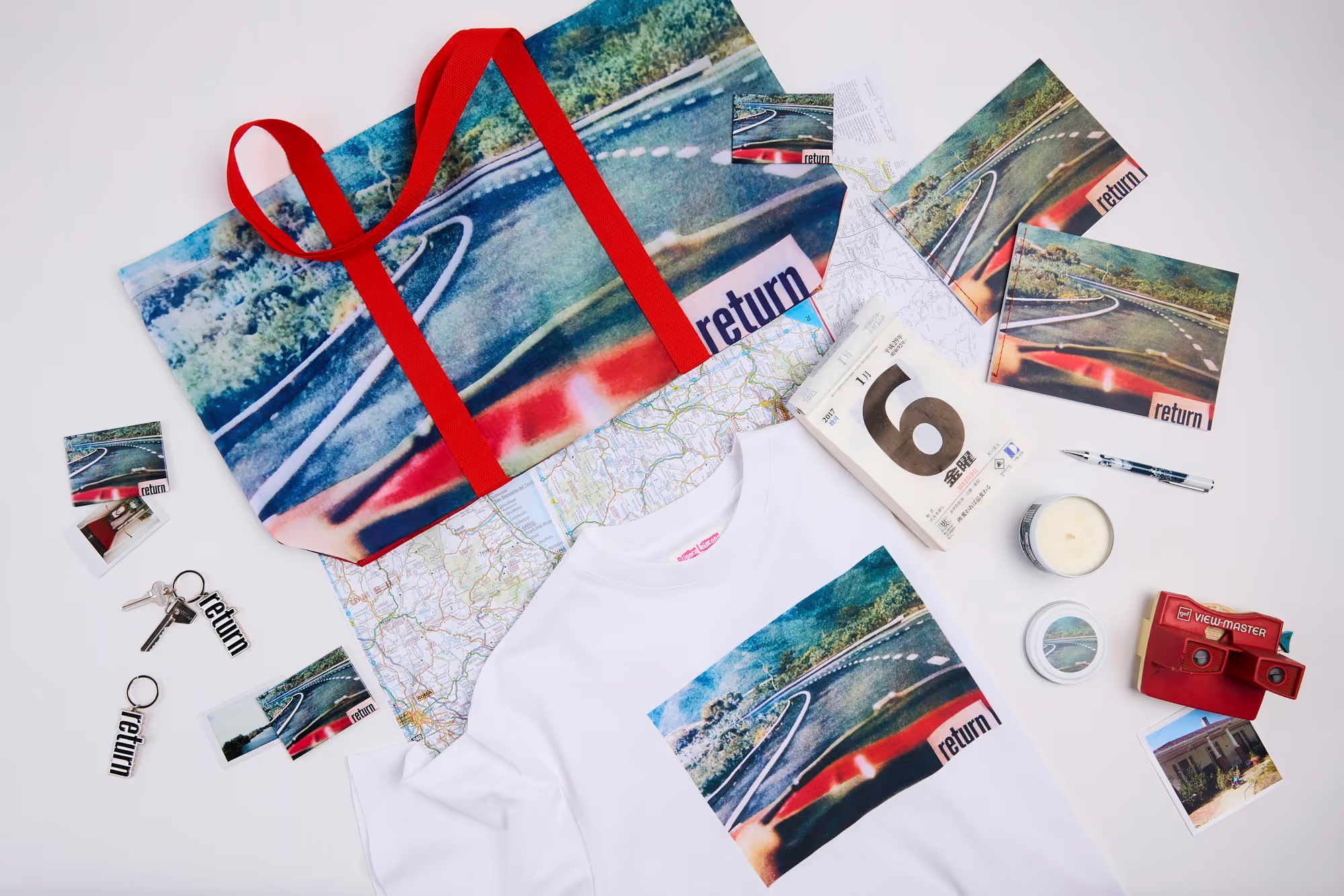
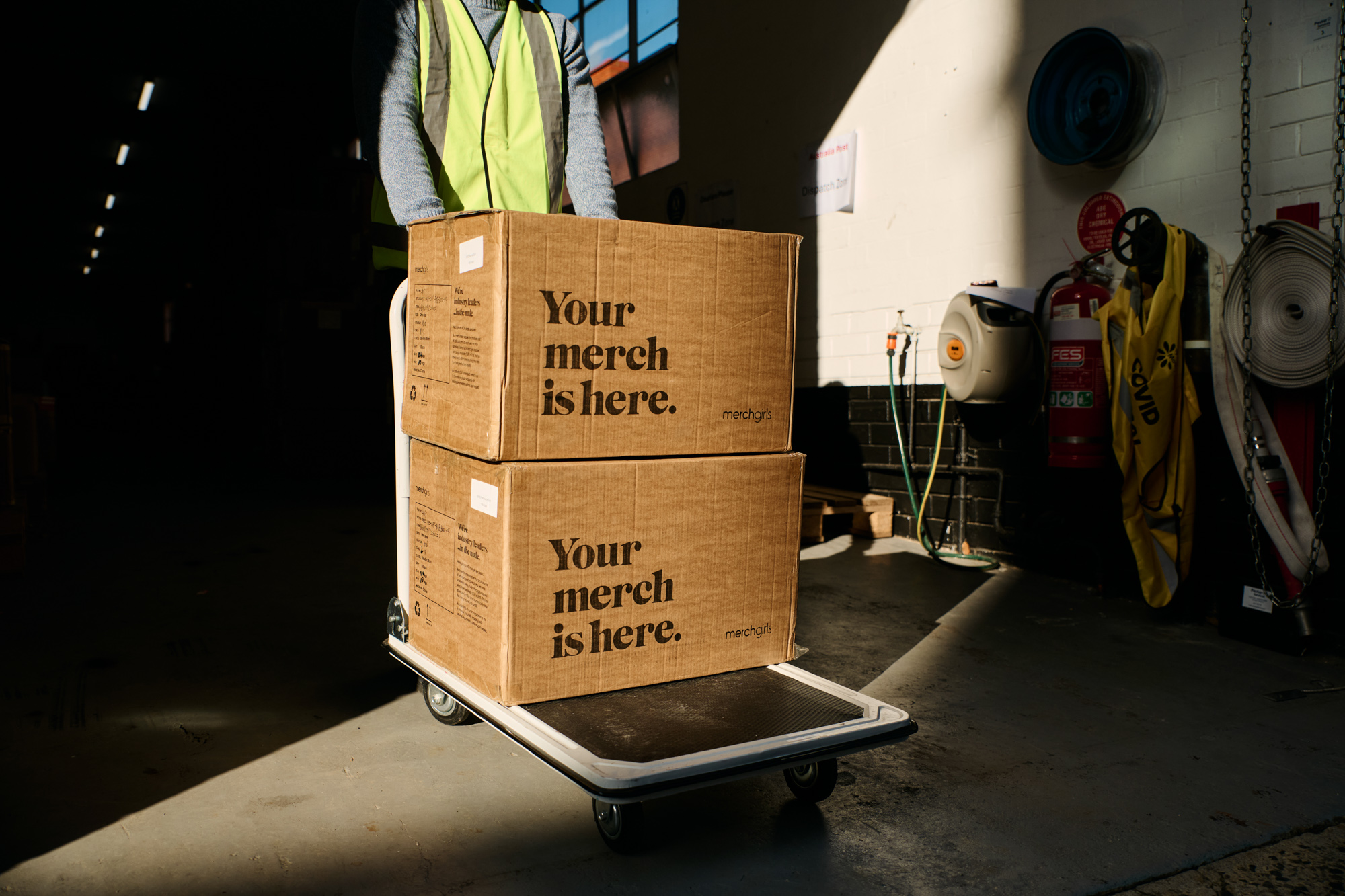

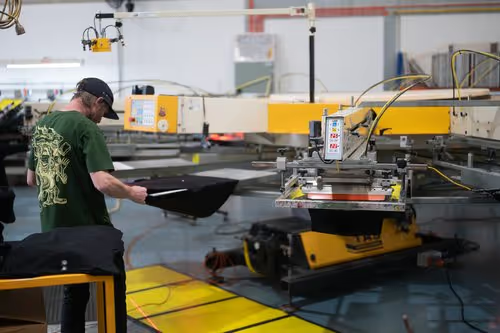
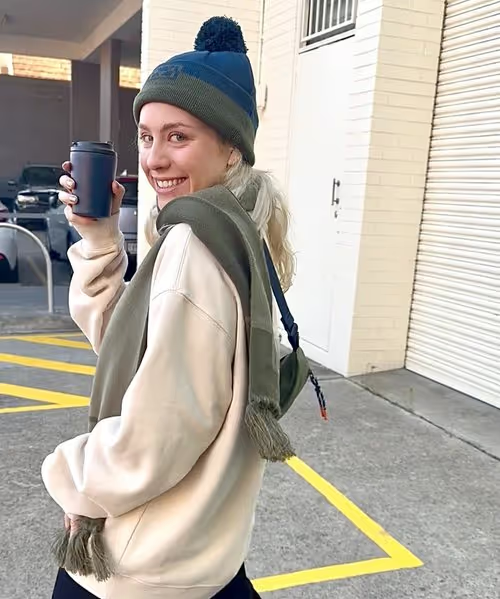
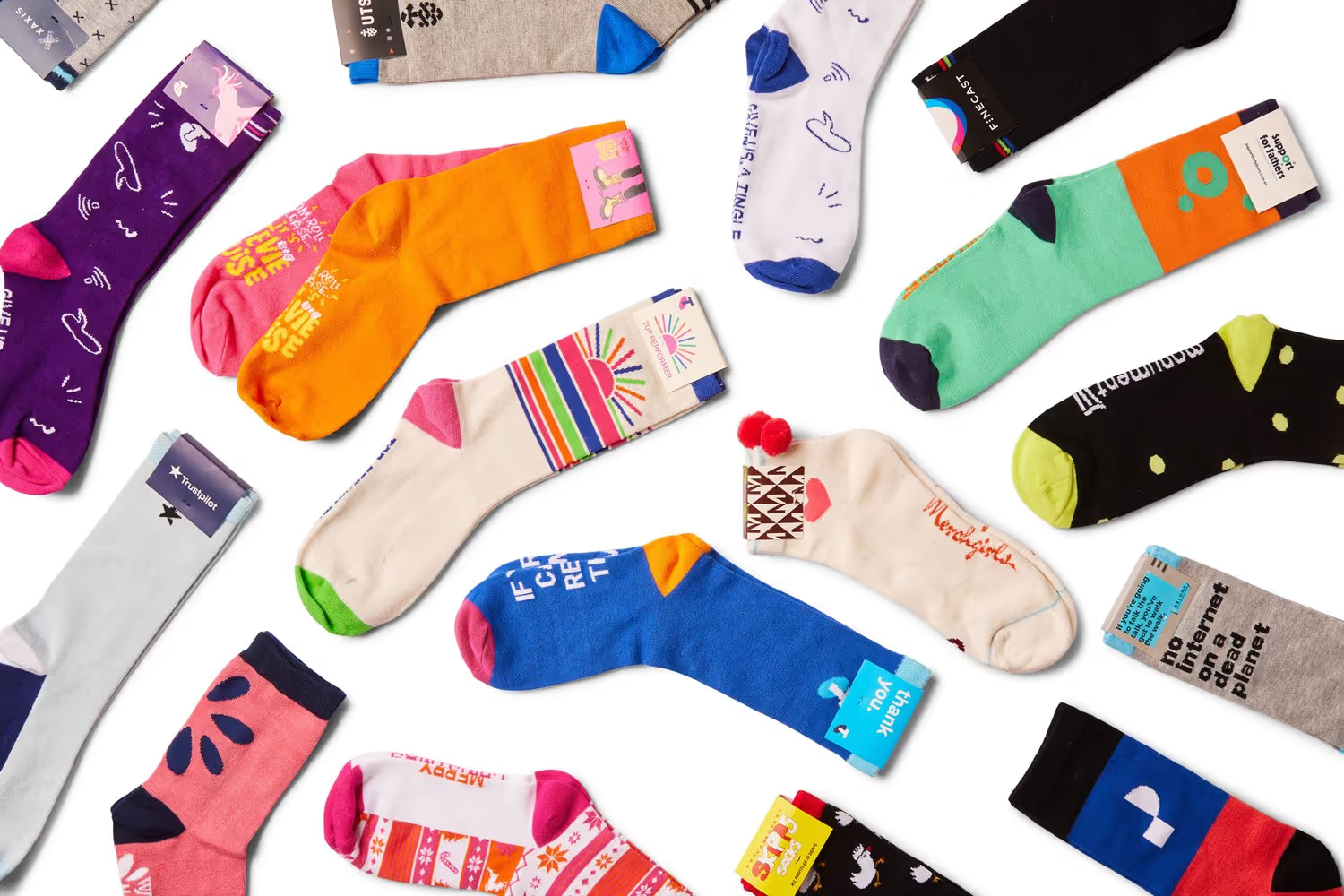

.jpg)
